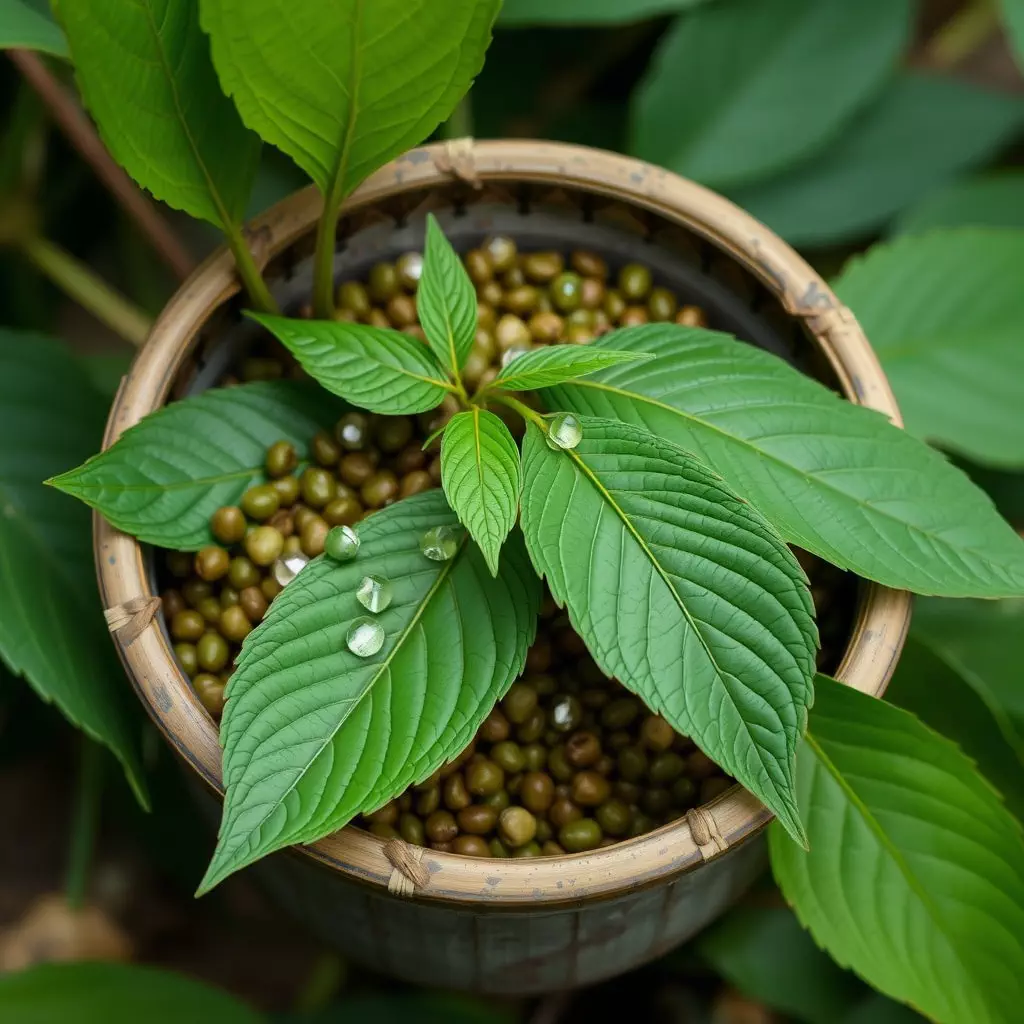Inflammation, a natural immune response, can cause health issues like joint pain and cardiovascular diseases when chronic. Kratom, derived from Mitragyna speciosa, offers anti-inflammatory properties differentiating it from NSAIDs. Despite varying legal statuses globally, including being illegal in Idaho due to local restrictions, ongoing research highlights kratom's potential as a natural remedy for chronic inflammation and pain management. Individuals using kratom in Idaho should consult local laws, as its legality varies, and use it responsibly with a low initial dose, gradually increasing as needed, while capping daily usage at 5-7 grams.
Inflammation reduction with kratom has gained significant attention as a natural alternative. This article delves into the science behind inflammation, exploring how kratom can offer relief. We’ll guide you through the legal status of kratom in Idaho, providing a comprehensive overview. Additionally, we’ll uncover safe and effective dosage practices for optimal results without exceeding legal limits. Remember that understanding regulations, such as Idaho’s stance on kratom, is crucial before considering its use for inflammation reduction.
- What is Inflammation and How Does Kratom Help?
- Is Kratom Legal in Idaho? A Comprehensive Overview
- Exploring Safe and Effective Dosage for Inflammation Reduction with Kratom
What is Inflammation and How Does Kratom Help?
Inflammation is a natural process that occurs as part of the body’s immune response, helping to protect against infections and injuries. However, chronic inflammation can lead to various health issues, including joint pain, skin conditions, and even cardiovascular diseases. It’s in these cases that substances like kratom may offer potential benefits.
Kratom, derived from the plant Mitragyna speciosa, has gained attention for its anti-inflammatory properties. Unlike nonsteroidal anti-inflammatory drugs (NSAIDs) that suppress inflammation systemically, kratom appears to work through specific receptors in the body, modulating pain and inflammation without some of the side effects associated with NSAIDs. While the legal status varies worldwide, including being currently illegal in Idaho, ongoing research suggests kratom’s potential as a natural remedy for chronic inflammation and pain management.
Is Kratom Legal in Idaho? A Comprehensive Overview
In Idaho, the legality of Kratom has been a subject of ongoing debate and interpretation. Currently, there’s no definitive statewide ban on Kratom, leaving its status somewhat ambiguous. However, it’s crucial to note that while certain forms of Kratom may be accessible, individual counties and cities within Idaho have the authority to enact their own restrictions. Some areas have classified Kratom as a controlled substance, effectively making it illegal for personal use.
To stay informed, residents should consult local laws and ordinances. Federally, Kratom is categorized as a Schedule I drug by the DEA, suggesting its potential for abuse. But this classification doesn’t automatically translate to state-level prohibition. It’s recommended that individuals seeking to use Kratom in Idaho do so responsibly, staying aware of local regulations to avoid legal complications.
Exploring Safe and Effective Dosage for Inflammation Reduction with Kratom
When exploring kratom for inflammation reduction, determining a safe and effective dosage is paramount. It’s crucial to understand that kratom’s effects can vary greatly among individuals due to factors like tolerance, metabolism, and strain type. Start with a low dose of 1-3 grams of dry leaf krathos, typically prepared as a tea or capsule, and observe its impact on your symptoms. Gradually increase the dosage in increments of 0.5-1 gram until you achieve the desired effect without exceeding 5-7 grams daily to minimize potential side effects.
Legality concerns, such as whether kratom is illegal in Idaho, should also be considered. In the U.S., kratom’s legal status varies by state, with some classifying it as a controlled substance. Always check local laws and regulations before acquiring or using kratom for medical purposes. Additionally, consult with a healthcare professional to ensure a safe and responsible approach to incorporating kratom into your wellness routine.
Kratom has shown promise as a natural anti-inflammatory agent, offering a potential alternative for managing inflammation without relying solely on pharmaceuticals. However, it’s crucial to note that while some states have legalized kratom for medical use, its legality varies widely, including in Idaho, where it remains largely regulated or illegal. Before considering kratom for inflammation reduction, individuals should thoroughly research local laws and consult healthcare professionals to ensure safe and responsible usage. Proper dosage and understanding the plant’s effects are essential for reaping potential benefits while mitigating risks associated with this natural remedy.






